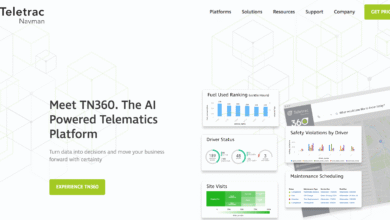Unlocking Efficiency: Knowledge Management Software for Modern Businesses

In an increasingly complex business landscape, the ability to collect, manage, and disseminate knowledge effectively is paramount to success. Companies of all sizes are seeking ways to harness the power of information to enhance their operations and remain competitive. Knowledge management software like RightAnswers has emerged as a critical tool to help businesses organize and access their collective intelligence in a dynamic and systemic way. Below, we delve into how this technology is redefining the way organizations handle information and why it is essential for business efficiency.
Unlocking Efficiency: The Role of Knowledge Management Software in Modern Businesses

Alt text: Teammates working together to implement knowledge management software to save their organization’s tacit knowledge.
The modern workplace is characterized by a wealth of information that needs to be navigated daily. Knowledge management software stands at the forefront of tackling this challenge, providing a centralized platform for storing and accessing critical data. The pivotal role of this software is to ensure that vital information is readily available to employees when they need it, thereby improving productivity and reducing downtime spent searching for data.
With knowledge being a valuable asset, effective management of this resource is a strategic imperative. The right software allows organizations to capture tacit knowledge held by individuals, making it accessible to the entire company. This translates into a more informed workforce capable of making quicker, better-informed decisions and fosters a learning culture within the organization.
Furthermore, a knowledge management software supports the preservation of institutional memory. As employees come and go, their insights and experiences can be lost. However, by documenting processes, best practices, and lessons learned, organizations can maintain continuity and build upon existing knowledge bases over time.
Streamlining Decision-Making Processes Through Integrated Knowledge Systems
l
When knowledge flows freely within an organization, decision-making becomes a more streamlined, evidence-based process. Knowledge management software integrates disparate sources of data into one coherent system, enabling decision-makers to rapidly access a wide range of information and insights. This accelerates the decision-making process while also ensuring that choices are well-informed and aligned with the organization’s goals and values.
By providing analytical tools and dashboards, such software also allows leaders to identify trends, patterns, and gaps in organizational knowledge. This ability to reflect on the collective intelligence of the company can lead to better strategic planning and the anticipation of future challenges and opportunities.
In a world where agility and responsiveness are key competitive advantages, the quick retrieval of relevant knowledge can mean the difference between capitalizing on a market opportunity and missing the boat. It equips employees at all levels with the insights they need to act decisively and with confidence, in line with organizational objectives.
Measuring the Impact of Knowledge Management Software on Business Performance
The implementation of knowledge management software is an investment in an organization’s intellectual capital, and like any investment, its performance should be measured. Key performance indicators (KPIs) related to knowledge management include improved employee productivity, decreased time to proficiency for new hires, and increased innovation outputs.
Customer satisfaction is another crucial measure of success for knowledge-driven businesses. When employees have easy access to comprehensive product information, customer histories, and support documentation, they can provide higher-quality service. This often results in faster resolutions, higher customer retention rates, and a more positive brand reputation.
Additionally, the cost savings associated with streamlined operations and reduced redundancy can be significant. Knowledge management software helps avoid duplicative work, allowing employees to build upon existing resources rather than reinventing the wheel. This efficiency is reflected in reduced operational costs and can make a notable difference to the bottom line.
Future-Proofing Your Organization: Adapting to Evolving Knowledge Management Technologies

Alt text: Happy employees discussing the capabilities of knowledge management software.
As technologies evolve, so do the capabilities of knowledge management software. AI and ML are beginning to play a more significant role in how information is categorized, retrieved, and analyzed. Forward-thinking businesses must stay abreast of these advancements to ensure their knowledge management strategies remain relevant and effective.
To future-proof their organizations, leaders must foster a culture that embraces change and invests in training and development. Ensuring that employees have the skills and mindset to adapt to new systems is as crucial as the technology itself. By doing so, businesses not only capitalize on the existing benefits of knowledge management but also position themselves to evolve with future innovations.
Altogether, knowledge management software has become an indispensable asset for modern businesses seeking to leverage information for a competitive advantage. By enhancing collaboration, streamlining decision-making, and measuring impact, organizations can unlock efficiency and drive performance. As businesses continue to adapt to an ever-changing knowledge landscape, the ongoing evolution of these platforms ensures that knowledge remains a powerful force in the pursuit of business excellence.




